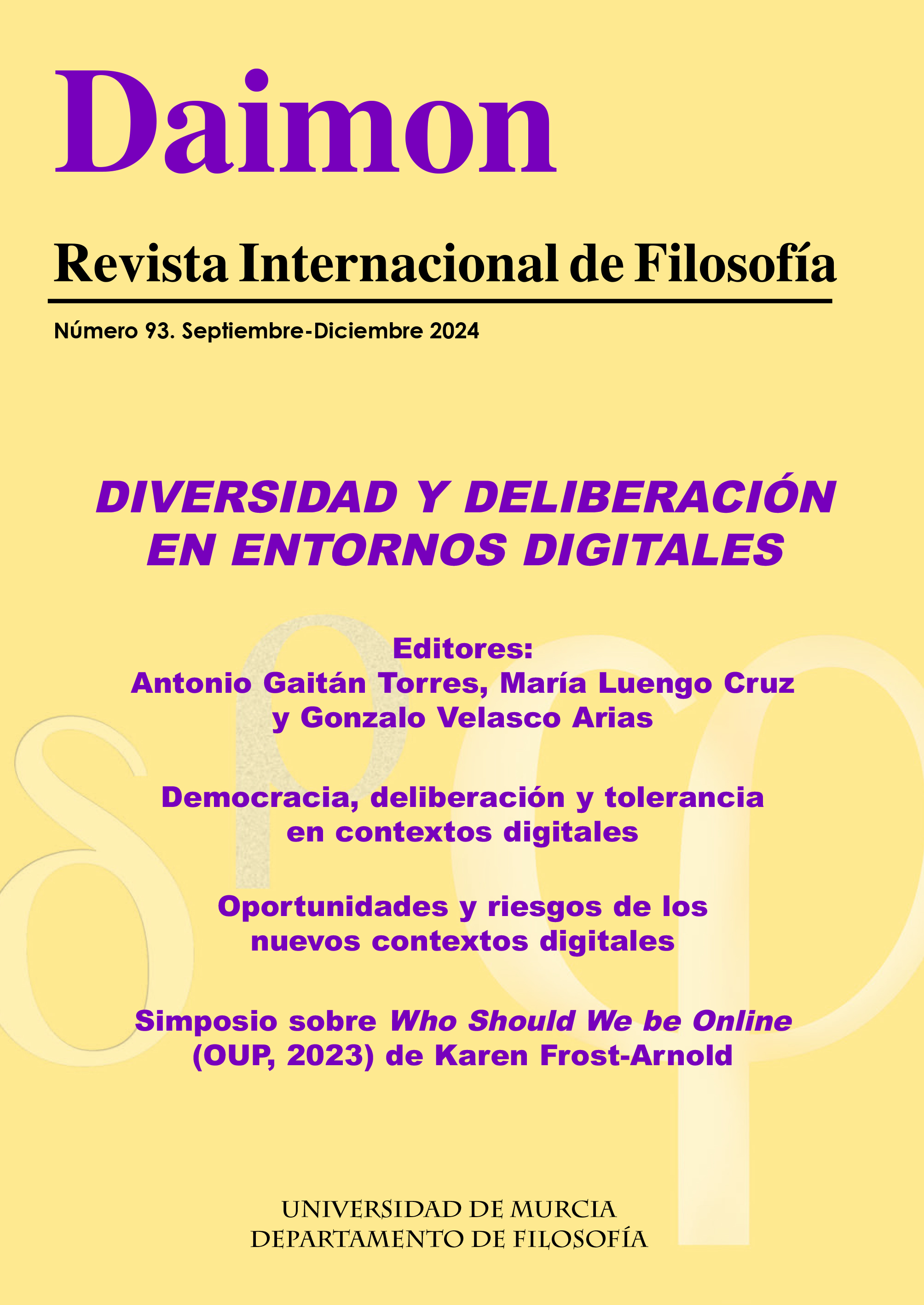Response to Comments
Résumé
Karen Frost-Arnold's response to comments
Téléchargements
-
Résumé280
-
PDF 132
-
HTML 17
Références
Brinkmann, Matthias. 2022. “In Defence of Non-Ideal Political Deference.” Episteme 19 (2): 264–85. https://doi.org/10.1017/epi.2020.26.
Cherry, Myisha V. 2021. The Case for Rage: Why Anger Is Essential to Anti-Racist Struggle. New York: Oxford University Press.
Citron, Danielle Keats. 2022. The Fight for Privacy: Protecting Dignity, Identity, and Love in the Digital Age. New York: W.W. Norton & Company, Inc.
Dotson, Kristie. 2011. “Tracking Epistemic Violence, Tracking Practices of Silencing.” Hypatia 26 (2): 236–57. https://doi.org/10.1111/j.1527-2001.2011.01177.x.
Fricker, Miranda. 2007. Epistemic Injustice: Power and Ethics in Knowing. New York: Oxford University Press.
Frost-Arnold, Karen. 2014. “Imposters, Tricksters, and Trustworthiness as an Epistemic Virtue.” Hypatia 29 (4): 790–807. https://doi.org/10.1111/hypa.12107.
Frost-Arnold, Karen. 2018. “Wikipedia.” In Routledge Handbook of Applied Epistemology, edited by David Coady and James Chase, 28–40. New York: Routledge.
Frost-Arnold, Karen. 2023. Who Should We Be Online? A Social Epistemology for the Internet. New York, NY: Oxford University Press.
Gaitán Torres, Antonio. 2024. “Epistemic Communities and Trust in Digital Contexts.” Daimon: The International Journal of Philosophy.
Jones, Karen. 2002. “The Politics of Credibility.” In A Mind of One’s Own: Feminist Essays on Reason and Objectivity, edited by Louise Antony and Charlotte Witt, 154–76. Boulder, CO: Westview Press.
Levy, Neil. 2019. “Due Deference to Denialism: Explaining Ordinary People’s Rejection of Established Scientific Findings.” Synthese 196 (1): 313–27. https://doi.org/10.1007/s11229-017-1477-x.
McKinnon, Rachel. 2017. “Allies Behaving Badly: Gaslighting as Epistemic Injustice.” In The Routledge Handbook of Epistemic Injustice, edited by Ian James Kidd, José Medina, and Gaile Pohlhaus Jr., 167–74. New York: Routledge.
Medina Vizuete, Lola, and Daniel Barbarrusa. Forthcoming. “Am I Still Young at 20? Online Bubbles for Epistemic Activism.” Topoi.
Mills, Charles. 2007. “White Ignorance.” In Race and Epistemologies of Ignorance, edited by Nancy Tuana and Shannon Sullivan, 26–31. Albany, NY: SUNY Press.
Mitova, Veli. 2020. “Decolonising Knowledge Here and Now.” Philosophical Papers 49 (2): 191–212. https://doi.org/10.1080/05568641.2020.1779606.
Nagel, Jennifer. 2017. “Comments on The Internet of Us: Knowing More and Understanding Less in the Age of Big Data.” Presented at the APA Pacific Division Meeting, Seattle, Washington.
Pohlhaus Jr., Gaile. 2012. “Relational Knowing and Epistemic Injustice: Toward a Theory of Willful Hermeneutical Ignorance.” Hypatia 27 (4): 715–35. https://doi.org/10.1111/j.1527-2001.2011.01222.x.
Ridder, Jeroen de. 2022. “Online Illusions of Understanding.” Social Epistemology, 1–16. https://doi.org/10.1080/02691728.2022.2151331.
Tobi, Abraham T. 2020. “Towards A Plausible Account of Epistemic Decolonisation.” Philosophical Papers 49 (2): 253–78. https://doi.org/10.1080/05568641.2020.1779602.
© Daimon 2024

Cette œuvre est sous licence Creative Commons Attribution - Pas d’Utilisation Commerciale - Pas de Modification 3.0 non transposé.
Las obras que se publican en esta revista están sujetas a los siguientes términos:
1. El Servicio de Publicaciones de la Universidad de Murcia (la editorial) conserva los derechos patrimoniales (copyright) de las obras publicadas, y favorece y permite la reutilización de las mismas bajo la licencia de uso indicada en el punto 2.
2. Las obras se publican en la edición electrónica de la revista bajo una licencia Creative Commons Reconocimiento-NoComercial-SinObraDerivada 3.0 España (texto legal). Se pueden copiar, usar, difundir, transmitir y exponer públicamente, siempre que: i) se cite la autoría y la fuente original de su publicación (revista, editorial y URL de la obra); ii) no se usen para fines comerciales; iii) si remezcla, transforma o crea a partir del material, no podrá distribuir el material modificado.
3. Condiciones de auto-archivo. Se permite y se anima a los autores a difundir electrónicamente las versiones pre-print (versión antes de ser evaluada) y/o post-print (versión evaluada y aceptada para su publicación) de sus obras antes de su publicación, ya que favorece su circulación y difusión más temprana y con ello un posible aumento en su citación y alcance entre la comunidad académica. Color RoMEO: verde.











